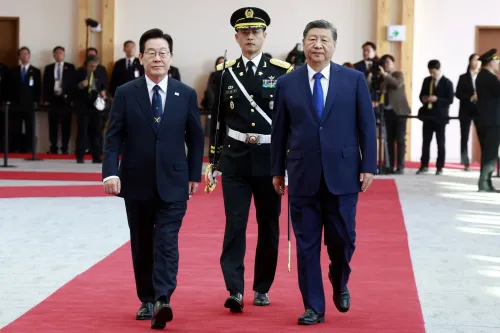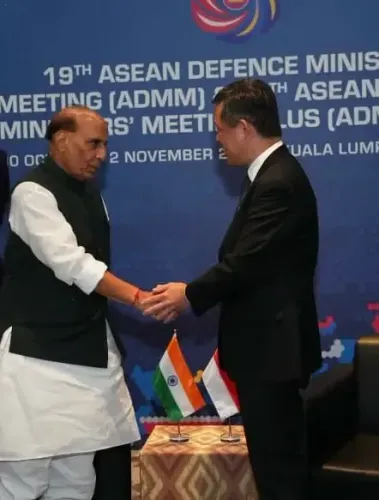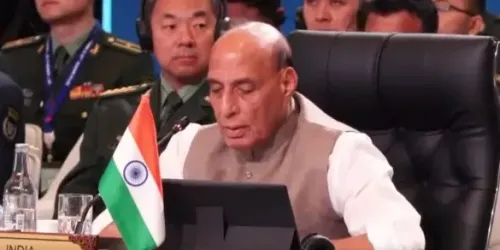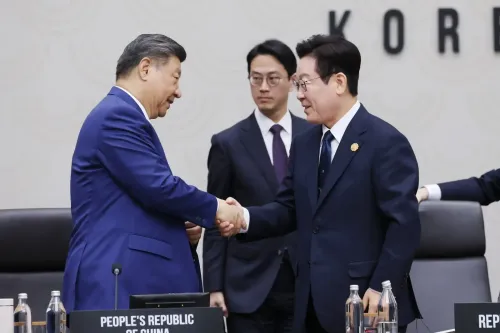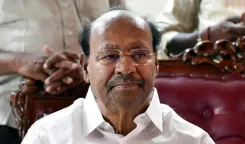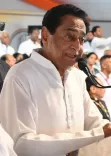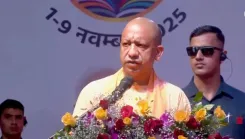Did the Bangladesh Supreme Court Just Reinstate Jamaat-e-Islami as a Political Party?
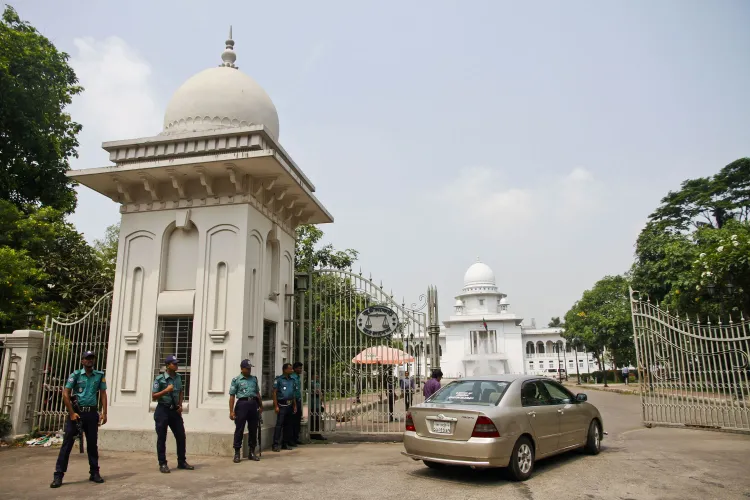
Synopsis
Key Takeaways
- The Supreme Court reinstated Jamaat-e-Islami's political registration.
- The ruling overturns a prior High Court decision.
- ATM Azharul Islam was recently acquitted of serious charges.
- Political dynamics in Bangladesh may shift due to these developments.
- The Election Commission has been directed to act promptly.
Dhaka, June 1 (NationPress) In a contentious ruling, the Supreme Court of Bangladesh has mandated the reinstatement of Jamaat-e-Islami's registration as a political entity, reversing an earlier judgment by the High Court that deemed the party's registration invalid.
Local media reports indicate that the apex court has instructed the Election Commission (EC) to act on this order promptly.
However, the court chose not to make any decisions concerning the party's electoral symbol, the "scales," leaving this matter for the EC to determine.
This ruling was announced by a four-member Appellate Bench led by Chief Justice Syed Refaat Ahmed, as reported by The Dhaka Tribune.
This event follows the court's recent acquittal of Jamaat leader ATM Azharul Islam, who had previously been sentenced to death by the International Crimes Tribunal (ICT) for crimes against humanity during Bangladesh's 1971 Liberation War.
The indictment alleged that Islam was responsible for the deaths of 1,256 individuals, the abduction of 17, and the rape of 13 women in the Rangpur region during the conflict.
The fight for Jamaat-e-Islami's political recognition dates back to August 1, 2013, when the High Court ruled its registration illegal following a writ petition.
The Election Commission acted accordingly, formally revoking the registration in December 2018.
Although Jamaat contested the High Court's ruling, the Appellate Division dismissed the appeal in November 2023 due to the absence of the party's principal attorney.
As a result, the High Court's ruling remained in effect until this recent decision.
The party's resurgence in legal standing comes on the heels of the Awami League government's removal, led by Sheikh Hasina, during a tumultuous uprising last year.
In the aftermath, Jamaat submitted a new petition aimed at restoring its status as a registered political party.
In October, the Appellate Division accepted Jamaat's petition, paving the way for the ruling on Sunday.
The interim government under Muhammad Yunus, which took power after the fall of the Awami League, had previously lifted the ban on Jamaat and its student wing, Islami Chhatra Shibir, via a gazette notification.
These factions were designated illegal under the Anti-Terrorism Act of 2009 by the preceding administration.
These radical groups significantly contributed to the student-led protests that led to the ousting of Sheikh Hasina's democratically elected government.

